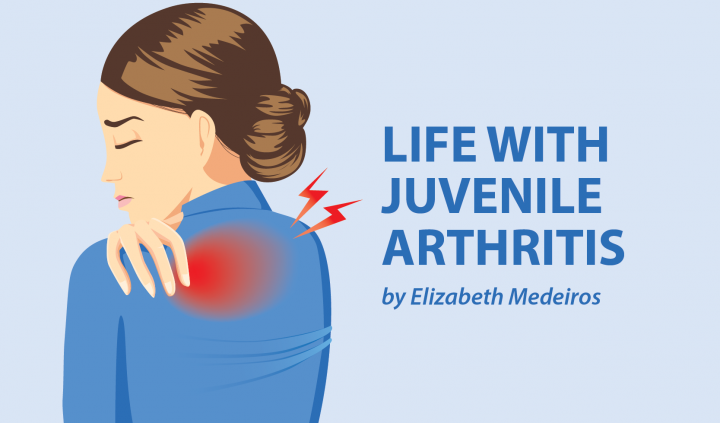When I was in high school, swim class was mandatory for all students. While most of my classmates dreaded it, I loved swimming! It was so refreshing to get in the water and was a great exercise for my joints.
One day, the teacher remarked that anyone with fungus or infections should not swim. That made sense to me, and I wondered who he was calling out. But then I noticed he was staring at my toenails, which were riddled with psoriasis. I was mortified.
Many kids with juvenile arthritis will face discrimination because they are “too young for arthritis ” or “don’t look sick or disabled.” Kids with juvenile psoriatic arthritis often face harsher judgment for their psoriasis.
Ignorance
Unfortunately, many don’t know about juvenile psoriatic arthritis — which is arthritis associated with psoriasis. Accounting for only 6 percent of cases of juvenile arthritis, juvenile psoriatic arthritis is one of the least common. While psoriasis is one of the most common autoimmune disorders in the U.S. — affecting 2.2 percent of the population — it is still frequently misunderstood. Many people are unaware that psoriasis is an autoimmune disease and assume it’s just an itchy, scaly rash.
Sometimes, others mistake psoriasis for an infection or fungus. It’s not uncommon for people to be asked to leave public pools, spas, water parks, hair salons, locker rooms, and nail salons. The experience is embarrassing and infuriating.
Emotions
Kids with juvenile psoriatic arthritis go through a lot. Dealing with psoriasis and arthritis is tough! It’s hurtful to be judged for the appearance of your skin, especially when it’s flaring and you’re not feeling good. Add on the judgment of others saying “you’re too young to have arthritis” or “you don’t look sick,” and your child might be carrying a lot on their shoulders.
Awareness
If your child has psoriatic arthritis, encourage their teachers and coaches to learn more. The National Psoriasis Foundation is a great resource for information. Help them to learn that psoriatic arthritis is a serious autoimmune disease — it’s not infectious or fungal. Educating teachers and coaches can help ensure that your child isn’t treated differently from other kids.
Learning more about psoriasis and psoriatic arthritis can help you defend your child if they are asked to leave a public place, such as a pool. It’s important to teach your child how to explain their condition properly and be assertive. It can be embarrassing and repetitive, but others will never learn about psoriasis and psoriatic arthritis unless we teach them.
Talk it out
Living with juvenile psoriatic arthritis is hard. It’s not uncommon for kids to feel insecure, embarrassed, and frustrated with their bodies. Sometimes, it feels like your body has betrayed you. It can make you want to hide, and comments from others make these emotions worse.
I highly recommend having your child talk with a psychologist or counselor, even if it’s only periodically. It helps to talk to someone who is knowledgeable about positive coping mechanisms. While most kids resist at first, many will come to benefit from counseling sessions.
Knowledge is power
I wasn’t kicked out of the pool that day, but the experience still hurt. After that, I decided to become more vocal about what it’s like to have psoriatic arthritis. I shared information through social media and even started a blog at age 15. I hoped that by informing others about my experience, people would be less judgmental of those affected by psoriatic arthritis. A little advocacy goes a long way!
***
Note: Juvenile Arthritis News is strictly a news and information website about the disease. It does not provide medical advice, diagnosis, or treatment. This content is not intended to be a substitute for professional medical advice, diagnosis, or treatment. Always seek the advice of your physician or other qualified health provider with any questions you may have regarding a medical condition. Never disregard professional medical advice or delay in seeking it because of something you have read on this website. The opinions expressed in this column are not those of Juvenile Arthritis News, or its parent company, BioNews Services, and are intended to spark discussion about issues pertaining to juvenile arthritis.


